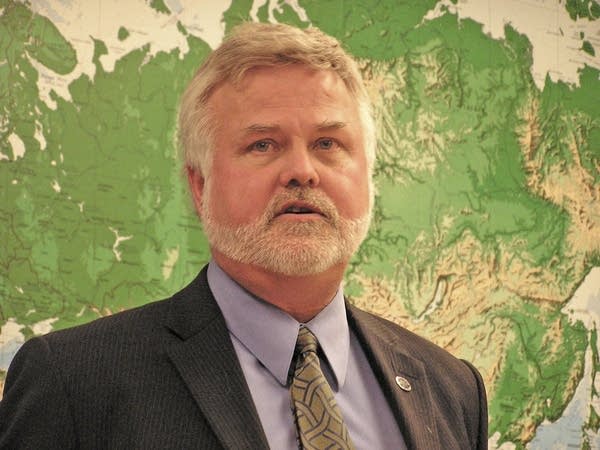Congress pushes ballast water regulations
Go Deeper.
Create an account or log in to save stories.
Like this?
Thanks for liking this story! We have added it to a list of your favorite stories.

Ship ballast water has a nasty habit of carrying creatures big and small from places they've lived for millenia to places they clearly don't belong at all.
The water carried aboard ships sailing the Great Lakes is blamed for bringing in destructive creatures like zebra mussels and sea lamprey - even a tiny virus that's been on a fish killing spree in the lower lakes. The problem's been recognized for years, but Congressman Jim Oberstar (D-Minnesota) says little has been done about it.

"We're at an end of patience with studies," Oberstar said at a March hearing on exotic species. "There is a good deal more that needs to be evaluated, studied, researched, and some, but there's things that we need to do now."
Oberstar chairs the House Transportation and Infrastructure Committee, and his district includes a piece of Lake Superior.
Turn Up Your Support
MPR News helps you turn down the noise and build shared understanding. Turn up your support for this public resource and keep trusted journalism accessible to all.
"We've had studies for years about invasive species," Oberstar says. "We know what they do. What we need to do is to get them out of the water column."

Now, the full Transportation Committee has approved regulations that for the first time will require salt water ships to install water treatment equipment to kill species in ship ballast water. The systems will phase in, beginning in 2009, although what treatment is to be used isn't specified.
The bill also authorizes the U.S. Department of Agriculture to adopt similar treatment rules for the Great Lakes fresh water fleets, although, without setting a deadline.
Port directors joined the push for federal regulation, despite the potential cost to ship owners. Duluth Seaway Port Director Adolph Ojard told the committee the lack of federal ballast regulation is hurting Great Lakes shipping.
"And for the Great Lakes shipping industry, that impact is the fear of isolation, and the fear of a growing patch work of differing and conflicting state laws," Ojard said.

The drum beat has been getting louder. Individual states have considered regulating the ships that call on their ports. The National Wildlife Federation just announced a lawsuit against ship owners they accuse of dumping untreated ballast in Great Lakes harbors. Now, the new regulations may force quick action, if the rules make it into law.
Unfortunately, ballast treatment technology is still in its infancy. That's where a new laboratory comes in, that just opened on a pier in Superior, Wisconsin.
"This is the shore-based test facility of the Great Ships initiative," says Allegra Cangelosi, a Senior Policy Analyst with the Northeast-Midwest Institute. The Institute is managing the Great Ships Initiative, which is behind this waterfront laboratory.
Cangelosi explains the mass of large water pipes, pumps and 50,000 gallon storage tanks on Superior's Montreal Pier.
"We're just beginning our process of calibrating the facility, that is, finding out all about it. We're very excited about what we'll be able to achieve here," Cangelosi says.
Here, promising technologies can be plugged into the network and tested for an ability to kill water borne organisms. Investigators will evaluate things like chemical treatments, de-oxygenation, and electronic options, like ultraviolet light, to see how they will work on a ship-sized scale.

"There aren't any fresh water test facilities, except this one," Cangelosi says. "So this is going to fill a very important information gap."
But meeting the federal regulations will still be a challenge. They're intended to control organisms as small as zooplankton and viruses, in sometimes very large ships. Cangelosi says it might be a hard goal to meet.
"If it's for a treatment system that will sterilize ship's ballast water, the answer is probably not," says Cangelosi. "If it's for something that performs significantly better than what we're doing right now, with the added requirement that it constantly improve over time, then, yeah, you can meet it. So it all depends on what else goes along with the deadline."
The ballast regulations are included in a U.S. Coast Guard funding package that's now headed from the Transportation Committee to the full House.
The timetable for actual passage is unclear.
If signed into law, ocean going ships will be phasing in treatment systems beginning in two years. Great Lakes ships could be next, but it would be up to the U.S. Agriculture Department when to enforce ballast treatment for the fresh water ships.
Dear reader,
Political debates with family or friends can get heated. But what if there was a way to handle them better?
You can learn how to have civil political conversations with our new e-book!
Download our free e-book, Talking Sense: Have Hard Political Conversations, Better, and learn how to talk without the tension.




